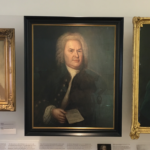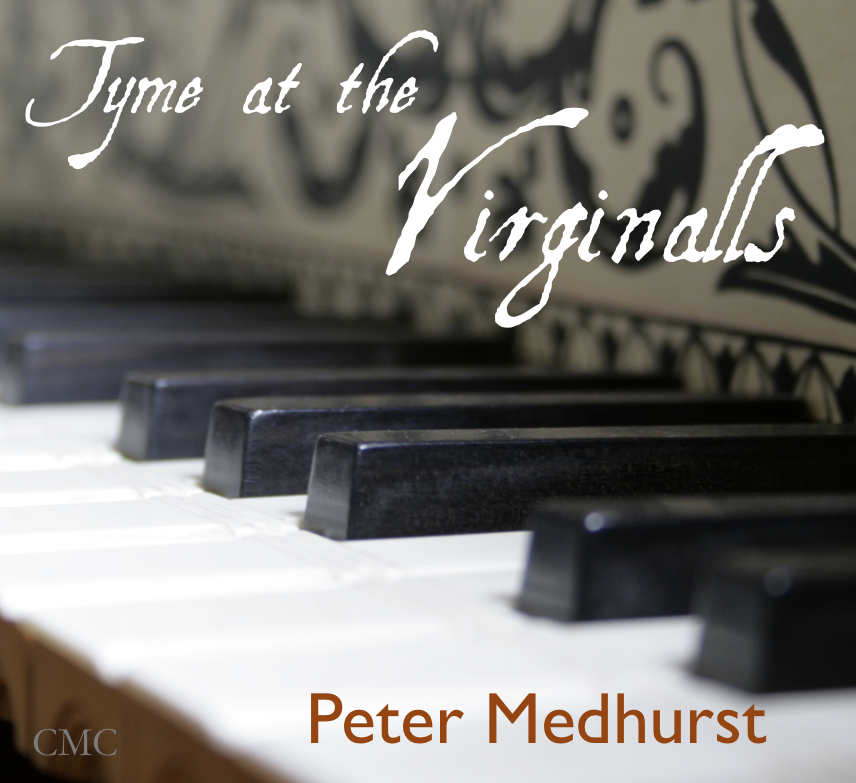| 1st July | Harold Road Study Day 2 | The influence of Bach and Handel on the Music of Haydn and Mozart
In 1782 Mozart wrote to his father: I go every Sunday at twelve o’clock to the Baron van Swieten, where nothing is played but Handel and Bach. I am collecting at the moment the fugues of Bach . . . Because of the aesthetic differences between the worlds of Baroque and Classical music, it might appear that there is little or no connection between the compositions of Bach and Handel and those of Haydn and Mozart. And yet, closer inspection reveals not only Haydn and Mozart’s indebtedness to the earlier composers, but also an appreciation and an understanding of their music as well. How and why this should be the case is the subject of the study day. 10.30 am – 5.00 pm For mailing list members only |
| 3rd July | The Barber Institute of Fine Arts
Edgbaston, Birmingham B15 2TS |
Lecture-recital
Music on the Grand Tour Peter Medhurst takes a look at 18th century Italian music making – the composers, the performers, the musical forms and styles – and determines exactly what it was that drew the musical British travellers south, time and time again. Information: NADFAS House 020 7430 0730 |
| 10th July | Romsey Festival
Abbey United Reformed Church, Romsey |
Recital
“The Course of True Love . . . ” Peter Medhurst | bass-baritone & piano Philip Salmon | tenor
Although Shakespeare once remarked of love that ‘it is an ever-fixed mark that looks on tempests and is never shaken’ he also suggested that ‘the course of true love never did run smooth’. Inspired by these ideas, Peter Medhurst and Philip Salmon present a mixed and varied programme of songs and duets that range from the 16th to the 21st centuries..
Music includes: I saw My Lady Weep – J Dowland, A Dialogue upon a Kiss – H Lawes, Pious Celinda – H Purcell, Sweeter than Roses – H Purcell, She Never Told Her Love – J Haydn, O Mistress Mine – E Humperdinck, The Sally Gardens – I Gurney, Tell Me the Truth about Love – B Britten, Brush up Your Shakespeare – Cole Porter, The Bindweed and the Honeysuckle – Flanders & Swann 7.30 pm
|
| 13th July | Great Comp Festival
St Mary’s Platt, Borough Green TN15 8QS |
From Palace to Parlour The golden age of Viennese music & culture Introduced and presented by Peter Medhurst with Andrew James | baritone Linda Howarth | flute and Jeremy Limb | piano On a day that is filled with a variety of live performances, Peter Medhurst takes a look at the paintings, architecture, poetry and the history of the period to explore the music of four great Viennese composers – Haydn, Mozart, Beethoven and Schubert. Tickets £25.00 (to include tea or coffee from 10.30) |
| 15th July | Harold Road Study Day 3 | The influence of Mozart’s Piano Quintet in Eb (K452) on Beethoven’s Quintet in Eb for Piano and Wind instruments (Op 16)
Although Beethoven studied composition with Joseph Haydn, it is often the influence of Mozart that has the greater impact on the younger composer. The study day considers two great Piano Quintets, the first by Mozart written in 1784, and of which Mozart himself said “I myself consider it to be the best thing I have written in my life. The other quintet is by Beethoven, who – recognising the genius in Mozart’s chamber work – drew extraordinary inspiration from Mozart’s ideas and himself produced a masterpiece. The study day examines each work in turn and then goes on to search out the many parallels that exist between them. 10.30 am – 5.00 pm For mailing list members only |
| 21st July | The Old Sessions House
Canterbury Christ Church University, Canterbury CT1 1QU |
In the Wake of Handel
Lecture-recital Peter Medhurst explores the works of the French sculptor Roubiliac, the paintings of Hudson and Denner, the Vauxhall Pleasure Gardens, the novels of Samuel Butler, the Crystal Palace, the chimes of Westminster, as well as compositions by Sullivan and Tippett, to assess the cultural influences Handel had on ‘a nation’, as he once wrote, ‘from whom I have receiv’d so generous a protection’. 7.30 pm South Canterbury DFAS |
| 22nd July | The Mill at Sonning
Sonning Eye, Reading, Berkshire RG4 6TY |
Study Day Dissecting Schubert The airiness and carefree aspect of much of Franz Schubert’s music belies the fact that the private world of the composer was overshadowed by profound sorrow and immense unfulfillment. And indeed, it was Schubert himself who once remarked of his compositions that “those that give the world the greatest delight were born of my deepest griefs.” With an eye to the shrewd self-assessment of his output, Peter discusses and analyses Schubert’s music to reveal what it is that gives this great Viennese composer his unique and haunting musical voice. Music to include Piano Sonata in Bb D960, Impromptu in Ab as well as selections from Die Schöne Müllerin and Winterreise. Peter Medhurst presenter and bass-baritone with Richard Rowe | tenor Jeremy Limb | piano For booking details contact: Blue Thread Medhurst Productions 12 Hall Park Gate, Berkhamsted Herts HP4 2NJ Tel: +44 (0)1442 865528 |
| 24th July | The Rhodes Art Centre
1-3 South Road, Bishop’s Stortford, Hertfordshire County CM23 3JG
|
Study Day Dissecting Schubert Details are the same as for 22nd July above For booking details contact: Blue Thread Medhurst Productions 12 Hall Park Gate, Berkhamsted Herts HP4 2NJ Tel: +44 (0)1442 865528
|
| 5th August | Harold Road Study Day 4 | The influence of 18th century music on Prokofiev’s Symphony No 1 ‘The Classical’ and Stravinsky’s ballet Pulcinella
In 1913, Stravinsky and Prokofiev each had a succes de scandale, Stravinsky with his Rite of Spring and Prokofiev with the Second Piano Concerto. A few years later each composer embarked on the writing of a Neo-classical work, which became important turning points in their careers. Prokofiev wrote Symphony No 1 ‘The Classical’ and claimed that in it, he had drawn inspiration from the symphonies of Haydn, and that the symphony was the first work that he had written away from the piano – an experience that gave even greater originality to his future compositions. Stravinsky wrote the ballet score Pulcinella, which was based on the music of Pergolesi and other Italian Baroque composers. Stravinsky later remarked that the challenges of writing Pulcinella provided the gateway through which his future work became possible. The study looks closely at the two neo-classical works and delves into the 18th century to look at the prototypes. 10.30 am – 5.00 pm For mailing list members only |
| 18th September | Hornsea Golf Club
Rolston Road, Hornsea, Yorkshire HU18 1XG |
Lecture –recital
Vermeer – the musical pictures The Dutch paintings of the 17th century, which show musical scenes are among the most evocative and best loved of the period. However, the presence of music in the pictures of Vermeer and his contemporaries goes far beyond mere representation and appears to carry hidden and complex meanings that the viewer must attempt to decode, in order to get to the heart of the picture. Peter Medhurst discusses in great detail Vermeer’s musical scenes and performs a selection of period songs and keyboard music to complement the pictures. 10.30 am Holderness DFAS Contact: 01964 624214 |
| 18th September | Driffield Rugby Club
Kelleythorpe, Driffield Yorkshire YO25 9DW |
In the Wake of Handel
Lecture-recital Peter Medhurst explores the works of the French sculptor Roubiliac, the paintings of Hudson and Denner, the Vauxhall Pleasure Gardens, the novels of Samuel Butler, the Crystal Palace, the chimes of Westminster, as well as compositions by Sullivan and Tippett, to assess the cultural influences Handel had on ‘a nation’, as he once wrote, ‘from whom I have receiv’d so generous a protection’. Driffield DFAS 7.30 pm |




![The Scotish [sic] Gigg](https://petermedhurst.com/wp-content/uploads/2012/08/Peter120813untitled-shoot-2.jpg)